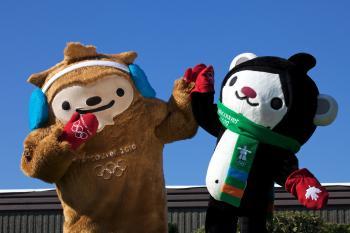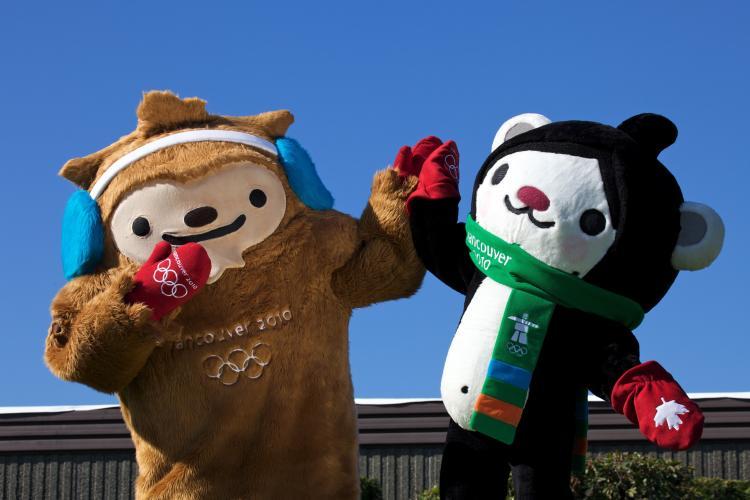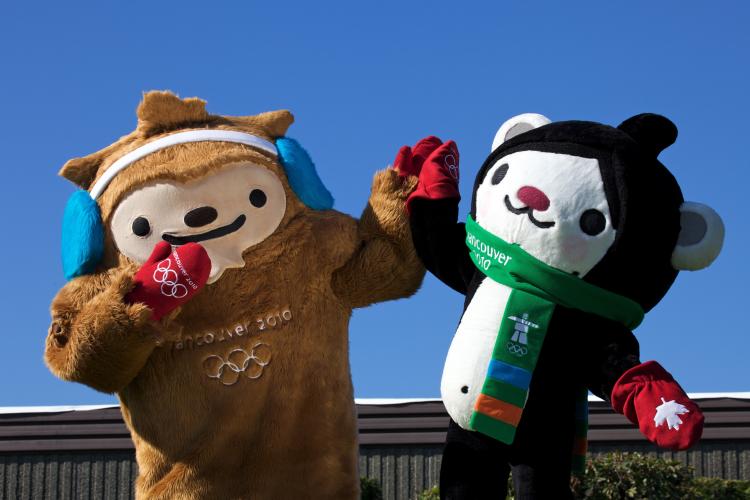VANCOUVER, Canada—As Vancouver prepares to host the world for the 2010 Winter Games, an Olympics initiative will see 17 boxes of sporting goods donated to children in Canada’s Far North.
Throughout this week, children in 17 of Canada’s most remote northern communities will receive the Olympic Spirit Boxes which are filled with equipment for hockey, soccer, lacrosse, baseball, and basketball.
The boxes hold enough to fully equip two teams for each of the five sports in 20 Aboriginal communities located in the Yukon, Northwest Territories, and Nunavut.
The initiative, which is intended to enhance existing sport programs in the communities, is part of the Vancouver 2010 Olympic Truce Program.
The 2010 Games marks the first time Canada has been responsible for Olympic Truce efforts—an ancient tradition dating back to 776 BC in Greece that was revitalized in 1992. The philosophy behind it is that sport can inspire peace.
“The Inuit have long understood the ability of traditional games or sport to bring people together from different places to develop friendships and strengthen cultural traditions,” said Mary Simon, president of Inuit Tapiriit Kanatami, in a statement.
“That’s why we’re so pleased with this project—not only will it bring much needed sports equipment to some of our most remote communities, it’s also focused on developing the athletic skills and leadership abilities of our children, who are our legacy and our future.”
The Vancouver 2010 Olympic Truce Northern Outreach Project was created by Olympics organizers in partnership with the Canadian Forces and the United Nations Association in Canada (UNAC) as a way to help children lead active and positive lifestyles through sport.
In addition to the donated goods, UNAC will send a UN facilitator to hold workshops in each of the 20 communities to teach youth to inspire and educate others about physical activity and the values of sport.
“Participation in sport and a sense of teamwork can truly motivate youth to become engaged in their communities,” said Kate White, UNAC’s executive director. “With the power and the spirit of the Olympic Games behind it, the initiative has even more potential to inspire the children involved.”
Upon arrival, the equipment will be presented by Sharon Firth, a four-time Olympian and member of the Gwich’in First Nation in the Northwest Territories; Blythe Hartley, an Olympic bronze medallist and world champion in diving; and Olympic mascots Quatchi and Miga.
The Olympic Spirit Boxes will be delivered to the Northwest Territories’ communities of Fort Simpson, Fort Smith, and Hay River separately in early February, making a total of 20 communities.
Most of the goods were donated by Nike, the official high performance sporting goods manufacturer for the Games. The hockey sticks were provided by the National Hockey League’s Vancouver Canucks, Edmonton Oilers, and Calgary Flames.
Throughout this week, children in 17 of Canada’s most remote northern communities will receive the Olympic Spirit Boxes which are filled with equipment for hockey, soccer, lacrosse, baseball, and basketball.
The boxes hold enough to fully equip two teams for each of the five sports in 20 Aboriginal communities located in the Yukon, Northwest Territories, and Nunavut.
The initiative, which is intended to enhance existing sport programs in the communities, is part of the Vancouver 2010 Olympic Truce Program.
The 2010 Games marks the first time Canada has been responsible for Olympic Truce efforts—an ancient tradition dating back to 776 BC in Greece that was revitalized in 1992. The philosophy behind it is that sport can inspire peace.
“The Inuit have long understood the ability of traditional games or sport to bring people together from different places to develop friendships and strengthen cultural traditions,” said Mary Simon, president of Inuit Tapiriit Kanatami, in a statement.
“That’s why we’re so pleased with this project—not only will it bring much needed sports equipment to some of our most remote communities, it’s also focused on developing the athletic skills and leadership abilities of our children, who are our legacy and our future.”
The Vancouver 2010 Olympic Truce Northern Outreach Project was created by Olympics organizers in partnership with the Canadian Forces and the United Nations Association in Canada (UNAC) as a way to help children lead active and positive lifestyles through sport.
In addition to the donated goods, UNAC will send a UN facilitator to hold workshops in each of the 20 communities to teach youth to inspire and educate others about physical activity and the values of sport.
“Participation in sport and a sense of teamwork can truly motivate youth to become engaged in their communities,” said Kate White, UNAC’s executive director. “With the power and the spirit of the Olympic Games behind it, the initiative has even more potential to inspire the children involved.”
Upon arrival, the equipment will be presented by Sharon Firth, a four-time Olympian and member of the Gwich’in First Nation in the Northwest Territories; Blythe Hartley, an Olympic bronze medallist and world champion in diving; and Olympic mascots Quatchi and Miga.
The Olympic Spirit Boxes will be delivered to the Northwest Territories’ communities of Fort Simpson, Fort Smith, and Hay River separately in early February, making a total of 20 communities.
Most of the goods were donated by Nike, the official high performance sporting goods manufacturer for the Games. The hockey sticks were provided by the National Hockey League’s Vancouver Canucks, Edmonton Oilers, and Calgary Flames.






